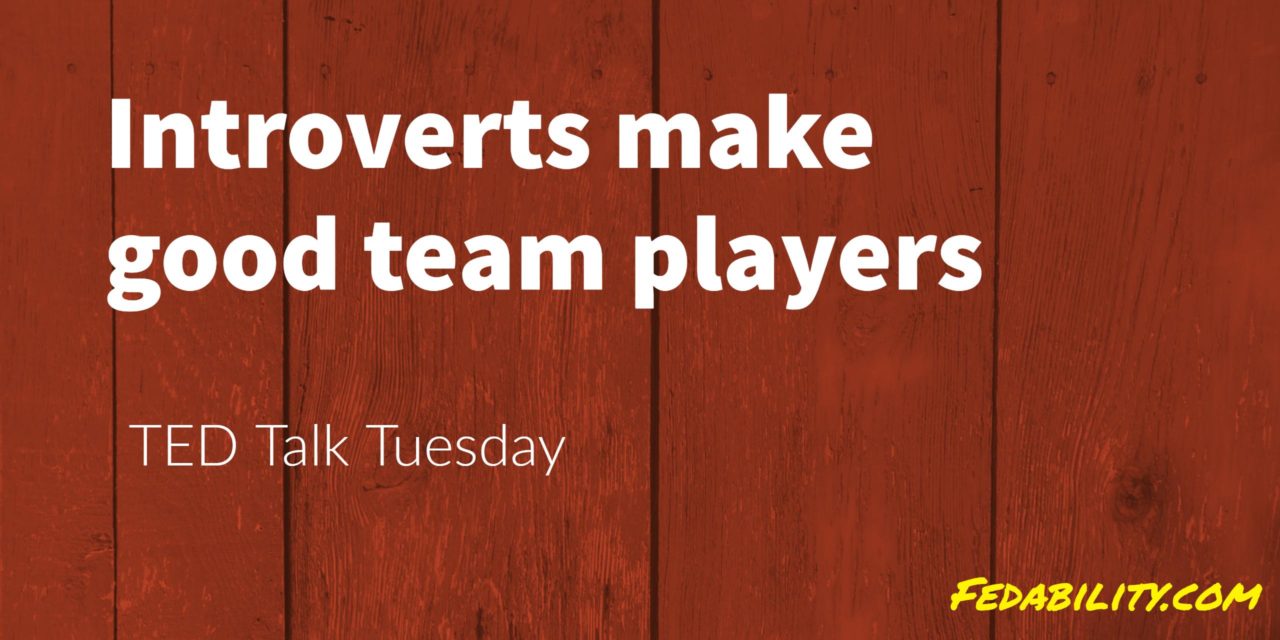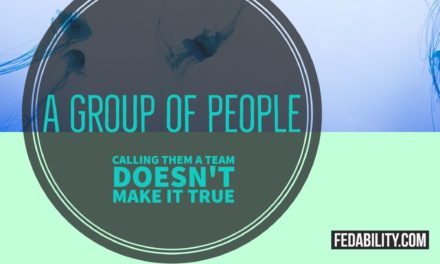Our inherent differences are what makes our contributions to the workplace valuable. Yet, some of the most basic differences are not only ignored, they are looked down upon. One of these differences is our propensity to be introverted or extroverted. In the TEDTalk by Susan Cain, she talks about how our work environment now hinges on the assumption (or the demand) that we are all extroverts. Especially in it’s reliance on teams and groups. Which raises the question whether an introvert can be a team player.
One of her three calls to action is to:
Stop the madness for constant group work. Just stop it. – Susan Cain
Is this a call to end teamwork? Does this mean introverts can’t be team players?
I think it’s about reconsidering what is teamwork. It’s a clarification that not all work can (or should) be done in collaborative settings. And, that there are some people who are better prepared to work on those more individual tasks.
In an article I’ve co-authored on teams, Is there a big 5 in teamwork?, we made the argument that there’s different ways that the work of individuals come together. They can come together via collaboration in which the task is more dynamic and depends on the interplay of the people on the team. Then, there’s coordination tasks in which the work is sequential – one team member’s work feeds into the next person’s work. Both approaches to working together are teamwork. Both are equally valid types of teams.
Managing teams
As managers, we must consider and understand how our people work best. Some crave the constant interaction with other people. If you force those people to work alone, they might just burst. Then there’s others that would rather die than have to do one more group project – debating the pros and cons of solutions. Or, writing reports together (I’ve literally sat with a team where they had a report projected on a screen and the members discussing the next sentence). This doesn’t mean they don’t value to work of their team members. I doesn’t mean they are not a team player. It means they’re better suited to individual tasks that can feed into larger team tasks. When assigning tasks, managers then need to consider who would be best to complete it.
Hiring teams
A final note on hiring. Oftentimes, I hear interview questions that try to assess whether someone works well with others. In fact, I’ve added those questions myself to interviews. But, what’s most important is that if you are hiring a new team member, that you are clear about what kind of team member you really need. Do they need to collaborate – or do they just need to coordinate? When candidates tell you about how they work in teams, try to really understand what they prefer. Be clear with them about what kind of team tasks they should expect to work on. There’s no point in torturing an extrovert with rather solitary tasks. Not only is it not fair to them, you aren’t using the best parts of their skill sets. Likewise, be realistic that nearly any team will have tasks that need to be worked independently. And, for that reason you need at least a couple introverts to be on the team.
What are your thoughts on introverts in teams? Do you think an introvert can be a team player? Share your thoughts in the comments below.
Like this post? Consider signing up for our weekly newsletter. Each week you’ll get updates on our newest posts. You’ll also receive access to our newest free give-aways. I promise not to spam you or sell your contact information to anyone.





